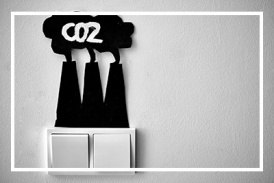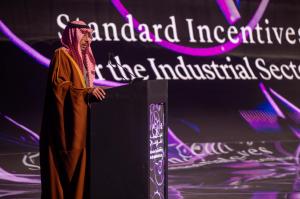Saudi Arabia Launches Standard Incentives Program to Attract Global Industrial Investors
It’s no secret that the Kingdom of Saudi Arabia is in the throes of diversifying its economy and advancing towards its Vision 2030 goals of new tourist hotspots, global events and increased sustainability.
However, one area that is perhaps most crucial to this evolution is the offering of international business investments, with Saudi providing an abundance of natural resources and opportunities for investor expansion in the country.
The Saudi government fully supports foreign investment in the Kingdom. In fact, its Ministry of Industry and Mineral Resources in collaboration with the Ministry of Investment, launched the Standard Incentives for the Industrial Sector, in January of this year.
The Standard Incentives for the Industrial Sector provides enablers to innovative projects that will grow the Kingdom’s industrial capacities. The initiative is currently open to all sectors and focuses on fostering investment in products that are currently not produced locally in the Kingdom, encouraging diversification and self-sufficiency.
The Kingdom is going full steam ahead on its effort to accelerate the development of the country’s industrial sector but understands that it cannot do this completely alone. The Standard Incentives also aligns with Saudi Vision 2030, the National Investment Strategy, and the National Industrial Strategy, positioning the Kingdom as a competitive manufacturing hub for the region.
A key objective of the Standard Incentives for the Industrial Sector is to maximize the Kingdom’s industrial competitiveness and attract investors by offering sustained financial and operational performance enablement for up to seven years, throughout both the construction and operational phases, enabling manufacturing projects. The program provides up to 35% of the eligible initial investment, with a cap of SAR 50 million, ensuring sustainable industrial growth.
The Standard Incentives for the Industrial Sector is open to a wide range of businesses, including sole proprietorships, joint liability companies, limited partnerships, joint ventures, joint stock companies and limited liability companies.
To qualify, projects must establish a new facility or expand an existing one to manufacture products not currently produced in Saudi Arabia, demonstrate a minimum equity participation of 25% in the initial investment and maintain a financially sound position evaluated through a creditworthiness assessment.
For investors, the Standard Incentives for the Industrial Sector presents an opportunity to establish competitive manufacturing operations in a rapidly growing economy, while enabling Saudi Arabia in its mission to become a global leader in industrial innovation.
Investors can apply for Standard Incentives through the Senaei Platform where applicants go through an initial screening and detailed assessment process:
https://industry.sa/en/home
Naif Alotaibi
Ministry of Industry and Mineral Resources
+966 50 531 8694
naif.alotaibi@fleishman.com
Legal Disclaimer:
EIN Presswire provides this news content "as is" without warranty of any kind. We do not accept any responsibility or liability for the accuracy, content, images, videos, licenses, completeness, legality, or reliability of the information contained in this article. If you have any complaints or copyright issues related to this article, kindly contact the author above.
Alvarez Plumbing Expands Sewer Camera Inspections & Hydro Jetting Drain Cleaning Services in Monterey County, CA
Lost Writings of Wartime Journalist Sue Moody to be Published for the First Time
Aldridge Construction Expands High-Quality Home Remodeling and Property Management Renovation Service in Monterey County
Więcej ważnych informacji
 Jedynka Newserii
Jedynka Newserii

 Jedynka Newserii
Jedynka Newserii

Ochrona środowiska

A. Bryłka (Konfederacja): Ograniczenie emisyjności nie musi się odbywać za pomocą celów klimatycznych. Są absurdalne, nierealne i niszczące europejską gospodarkę
W lipcu br. Komisja Europejska ogłosiła propozycję nowego celu klimatycznego, który zakłada ograniczenie emisji gazów cieplarnianych o 90 proc. do 2040 roku w porównaniu do stanu z 1990 roku. Został on zaproponowany bez zgody państw członkowskich, w przeciwieństwie do poprzednich celów na 2030 i 2050 rok. Polscy europarlamentarzyści uważają ochronę środowiska i zmiany w jej zakresie za potrzebne, jednak nie powinny się odbywać za pomocą nieosiągalnych celów klimatycznych.
Polityka
Dramatyczna sytuacja ludności w Strefie Gazy. Pilnie potrzebna dobrze zorganizowana pomoc humanitarna

Według danych organizacji Nutrition Cluster w Strefie Gazy w lipcu br. u prawie 12 tys. dzieci poniżej piątego roku życia stwierdzono ostre niedożywienie. To najwyższa miesięczna liczba odnotowana do tej pory. Mimo zniesienia całkowitej blokady Strefy Gazy sytuacja w dalszym ciągu jest dramatyczna, a z każdym dniem się pogarsza. Przedstawiciele Polskiej Akcji Humanitarnej uważają, że potrzebna jest natychmiastowa pomoc, która musi być dostosowana do aktualnych potrzeb poszkodowanych i wsparta przez stronę izraelską.
Polityka
Wśród Polaków rośnie zainteresowanie produktami emerytalnymi. Coraz chętniej wpłacają oszczędności na konta IKE i IKZE

Wzrosła liczba osób, które oszczędzają na cele emerytalne, jak również wartość zgromadzonych środków. Liczba uczestników systemu emerytalnego wyniosła w 2024 roku ponad 20,8 mln osób, a wartość aktywów – 307,5 mld zł – wynika z najnowszych danych Urzędu Komisji Nadzoru Finansowego (UKNF). Wyraźny wzrost odnotowano w przypadku rachunków IKE i IKZE, na których korzyść działają m.in. zachęty podatkowe. Wpłacane na nie oszczędności są inwestowane, a tym samym wspierają gospodarkę i mogą przynosić atrakcyjną stopę zwrotu.
Partner serwisu
Szkolenia

Akademia Newserii
Akademia Newserii to projekt, w ramach którego najlepsi polscy dziennikarze biznesowi, giełdowi oraz lifestylowi, a także szkoleniowcy z wieloletnim doświadczeniem dzielą się swoją wiedzą nt. pracy z mediami.









.gif)

 |
| |
| |
|